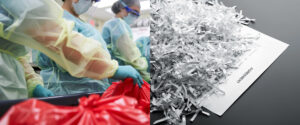Things To Know About Medical Waste Disposal

Medical waste disposal is a critical part of healthcare management that protects both public health and the environment. Medical waste refers to any by-products of healthcare activities, such as used needles, contaminated dressings, pathological waste, pharmaceutical residues, and even certain chemicals. If not handled correctly, this waste can spread infections, cause injuries, and pollute air, soil, and water sources. Biowaste Services, Inc. provides medical waste disposal in Fort Myers, FL, Ocoee, FL, Pinellas County, FL, Hillsborough County, Orange County, FL, Pasco County, FL and surrounding areas.
One of the most important aspects to understand is segregation at the source. Waste should be separated into clearly labeled containers—commonly color-coded—to distinguish between sharps, infectious materials, pharmaceutical waste, and general trash. This ensures that hazardous materials are not mixed with regular waste and can be treated appropriately.
Sharps disposal deserves special attention. Items like needles, scalpels, and broken glass must be placed in puncture-proof, leak-resistant containers to prevent accidental injuries and disease transmission. These containers are then incinerated or treated with specialized sterilization methods.
Another key principle is treatment before disposal. Infectious medical waste is often autoclaved (sterilized with high-pressure steam) or chemically disinfected to neutralize pathogens. Some materials, such as pathological waste or pharmaceuticals, may require incineration at high temperatures to ensure complete destruction.
Healthcare facilities must also comply with legal and regulatory requirements. Laws vary by region, but most include strict guidelines for storage, transportation, and disposal. Violations can lead to penalties and, more importantly, risks to public safety.
Environmental impact is another consideration. Traditional incineration can release harmful emissions, so many facilities are adopting eco-friendly alternatives, such as advanced autoclaves, microwave treatment, or energy-recovery systems. Safe and sustainable methods help reduce pollution while maintaining high safety standards.
Finally, training and awareness are essential. All healthcare staff should be educated on proper handling, segregation, and emergency procedures in case of accidental exposure.
In summary, medical waste disposal is not just a regulatory requirement but a public health necessity. Proper segregation, treatment, compliance, and education ensure safe disposal practices that protect healthcare workers, communities, and the environment.
If you need assistance, we’re just a phone call away.
